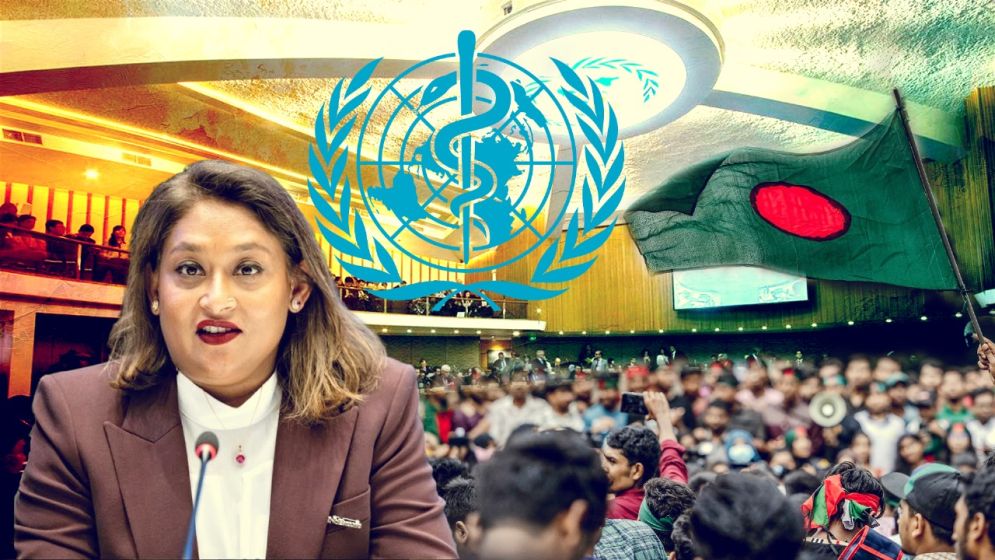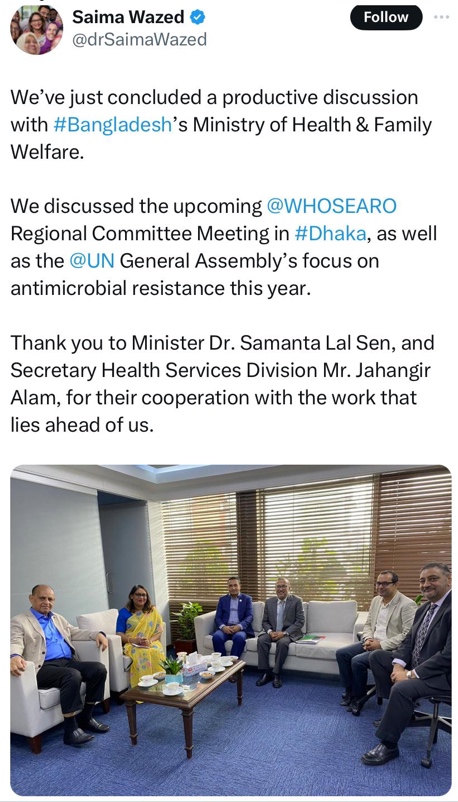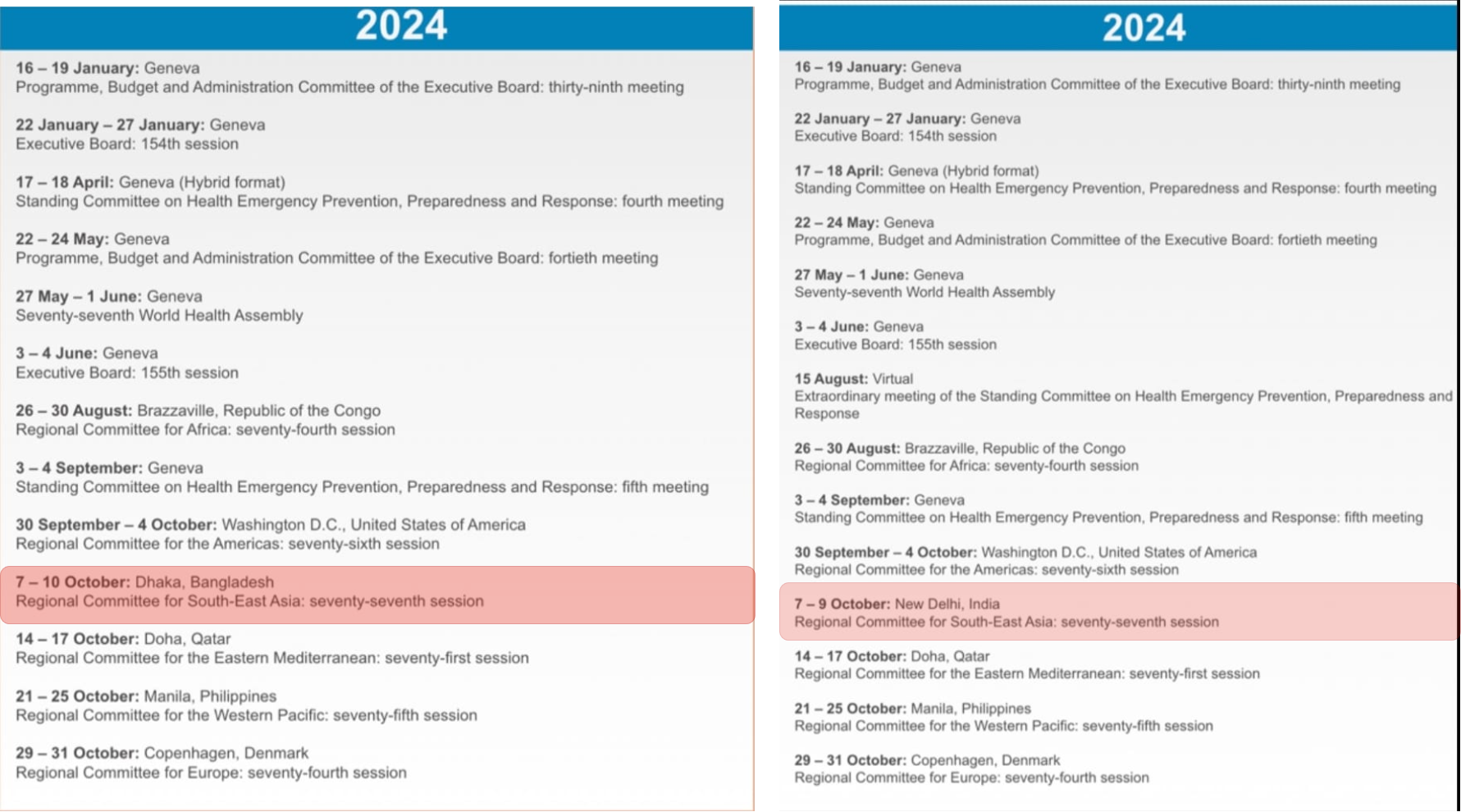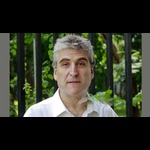Abrupt venue change for WHO regional meeting casts spotlight on Putul's controversial appointment again

On August 5, 2024, following the collapse of the Awami League government and Prime Minister Sheikh Hasina's subsequent flight to India, an intriguing subplot emerged involving her daughter, Saima “Putul” Wazed.
Just seven months prior, in February 2024, Wazed had assumed the role of Regional Director for the World Health Organization’s South-East Asia region after being elected as Bangladesh’s nominee among the eleven member countries.
The Awami League government’s nomination of Wazed for the position of WHO Regional Director was seen, not just in Bangladesh but also internationally, as highly controversial as it was widely judged that she was completely unqualified for the job.
The respected medical journal the Lancet said that her nomination threatened “to delegitimize both the election process and the future credibility of elected WHO Regional Directors” as well as “damaging trust in the integrity of WHO’s leaders.”
The journal’s editorial stated, “Wazed’s highest academic qualification is an MSc in clinical psychology from Barry University” in Miami while “the 11 other candidates for the regional director positions are either medical doctors or have PhDs, or are medical doctors who also have PhDs.”
The Lancet quoted Kul Chandra Gautam, a former assistant UN secretary-general, as saying, “If she were not the daughter of the prime minister, I don’t think she would be a serious candidate.”
Initial criticism and the fall of the Hasina government
Despite widespread concerns over her qualifications, Sheikh Hasina, with crucial backing from the Indian government, worked diligently to secure the support of a majority of the 11 South-East Asian member countries for her daughter.
As a result, Wazed, described by The Lancet as an “unqualified school psychologist” with a “history of advocacy for autism,” was appointed as the WHO’s regional director.
Initially, when Wazed assumed the position in February, criticisms primarily focused on her lack of experience and the perception of nepotism in her appointment.
However, following the August 5th overthrow of the Awami League, new questions arose.
Could the daughter of Sheikh Hasina, now branded as a “dictator” and accused of being criminally complicit in the deaths of numerous students and protestors in the weeks leading up to her mother’s ousting, continue to hold her senior UN role, which was largely attributed to her family connections?
The Bangladesh government has yet to clarify whether it intends to maintain the status quo or seek Saima Wazed's removal from her position, a process that would necessitate support from other countries in the South-East Asia region.
However, more details about Wazed’s future may emerge next week as the WHO South-East Asia regional countries convene for their annual meeting on Monday, October 7.
Originally scheduled to take place in Dhaka, the meeting had drawn particular attention.
Sudden venue shifting amidst fear of repercussion
On July 11, 2024, just five days before the first law enforcement killings of student protestors in Bangladesh, Wazed was in Dhaka and tweeted about her discussions with officials from the Ministry of Health regarding the upcoming meeting: “We discussed the upcoming @WHOSEARO regional meeting in Dhaka…”

Up until August 26, WHO’s website continued to confirm that the meeting would be held in Dhaka.
However, the WHO's regional office abruptly changed the venue to New Delhi, and, perhaps seeking to downplay the implications of the change in location, made no public announcement.

The change in venue was clearly necessary. Saima Wazed could not travel to Dhaka given the hostile environment surrounding her mother and the Awami League, which Wazed has consistently supported.
The new government would likely also have been opposed to her presence in the country as the Regional WHO Director.
When asked about the venue change, the WHO’s regional office explained that it followed communication from the Government of Bangladesh indicating they would be unable to host the event.
Since late August, the situation has become even more critical, with numerous criminal cases filed against her mother. Wazed herself is under investigation for alleged offenses related to money laundering, and her bank accounts in Bangladesh, along with those of other family members, have been frozen.
Rahat
Bin Zaman, the Director General for the United Nations at the Bangladesh Foreign
Ministry told Bangla Outlook that a Senior Secretary from the Health Services Division
is representing Bangladesh at the regional meeting and that he was “not aware
of any decision taken by the government” on the question of Saima Wazed.
Regardless of how the new Bangladesh government chooses to address Wazed’s position, the WHO’s decision to change the meeting venue underscores the untenability of her remaining as Regional Director when she cannot visit one of the eleven member countries she oversees and may well face criminal charges if she were to enter Bangladesh.
—-
David Bergman
is a journalist based in the UK and Bangladesh. He has long been covering
Bangladesh affairs. He can be followed on X @TheDavidBergman

